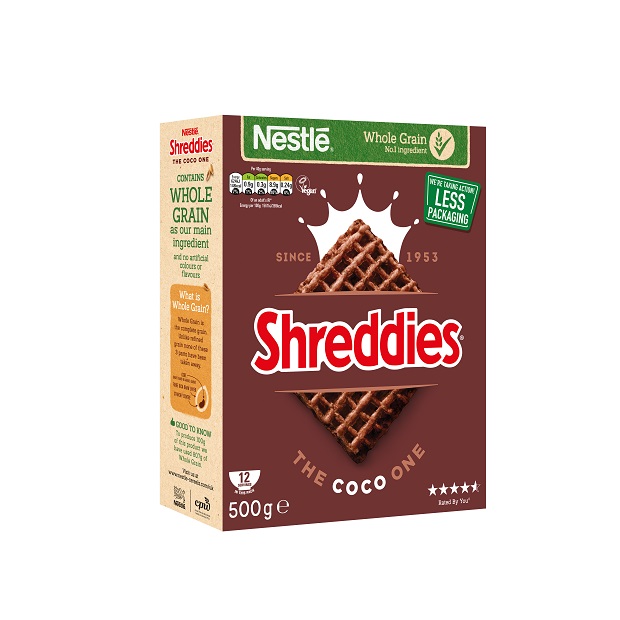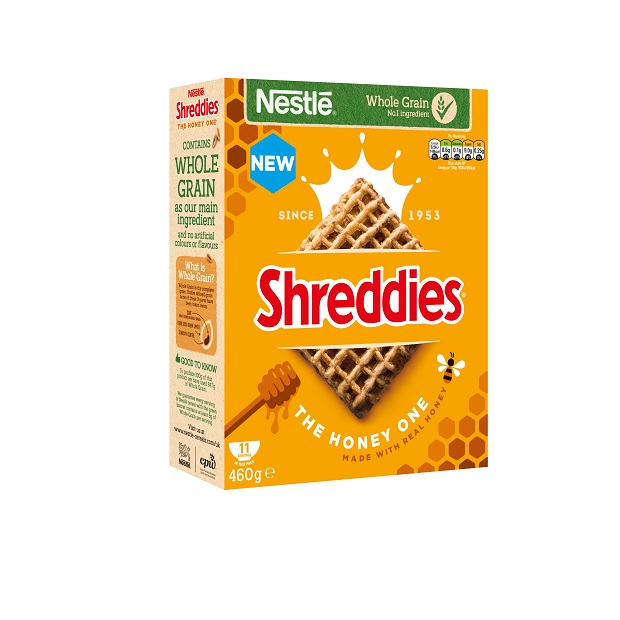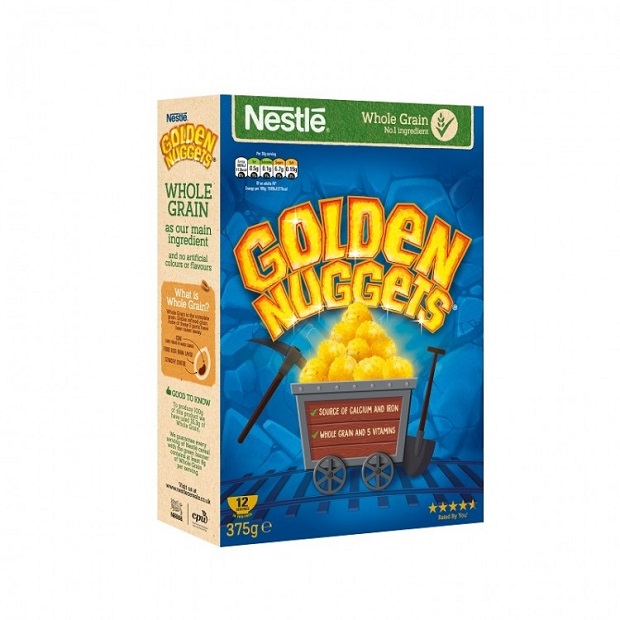- Despite proven nutritional benefits of a diet high in fibre, only half (51%) of UK consumers believe they have enough fibre in their diet
- Whole grain is an easy way to increase fibre in the diet but a third (34%) of people believe consumers don’t know what products actually contain whole grain
- Latest research from Nestlé Cereals also shows the long-lasting impact of the pandemic on consumer shopping habits, with more than a third (34%) of consumers more health-conscious post-pandemic when it comes to their food shop
 New research from Nestlé Cereals highlights that only half of UK consumers believe they have enough fibre in their diet – with one in five (19%) actively aware that they don’t eat enough of it. And, whilst cereals high in whole grain can be an easy solution, the majority of consumers (85%) have little or no knowledge of whole grain and its nutritional value.
New research from Nestlé Cereals highlights that only half of UK consumers believe they have enough fibre in their diet – with one in five (19%) actively aware that they don’t eat enough of it. And, whilst cereals high in whole grain can be an easy solution, the majority of consumers (85%) have little or no knowledge of whole grain and its nutritional value.
 When asked about the benefits of including whole grain in the diet, 51% were unaware that it is good for the heart and more than seven in ten (72%) were unaware that it can reduce the risk of type-2 diabetes.
When asked about the benefits of including whole grain in the diet, 51% were unaware that it is good for the heart and more than seven in ten (72%) were unaware that it can reduce the risk of type-2 diabetes.
 As well as a lack of knowledge around the health benefits of whole grain, more than a third (34%) of consumers believe the reason that people don’t consume more whole grain is because they don’t know what products it is in. Of those surveyed, 8% thought whole grain could be found in white bread and 5% in a banana.
As well as a lack of knowledge around the health benefits of whole grain, more than a third (34%) of consumers believe the reason that people don’t consume more whole grain is because they don’t know what products it is in. Of those surveyed, 8% thought whole grain could be found in white bread and 5% in a banana.
The research also showed that the pandemic has changed the way some consumers buy products, with a third (34%) saying they were now more concerned about choosing food options they believe have health benefits, with three in five (60%) feeling better about eating a product knowing that it contains whole grain.
Increasing the whole grain content of its cereal has been a central focus for Nestlé Cereals, with the company adding 106 million more 16g servings of whole grain to its cereals in 2020 vs 2010. In addition, the Nestlé Cereals’ signature front-of-pack green banner helps consumers easily choose cereals that have whole grain as the number one ingredient.
Toby Baker, Marketing Director UK & Australia, Nestlé Cereals, said: “Fibre is an important part of a healthy balanced diet and, despite having a broad range of benefits, our research shows many people admit they aren’t consuming enough.
“With the recommended fibre intake for adults sitting at 30g per day, choosing breakfast cereals containing whole grain is a simple way to increase fibre intake[1]. In addition, consumers can be reassured that if they choose a Nestlé cereal which features the green banner on pack, they are getting a great source of fibre since whole grain is the number one ingredient. It really is that easy.”
[1] https://www.bda.uk.com/resourceDetail/printPdf/?resource=wholegrains




Comments are closed.